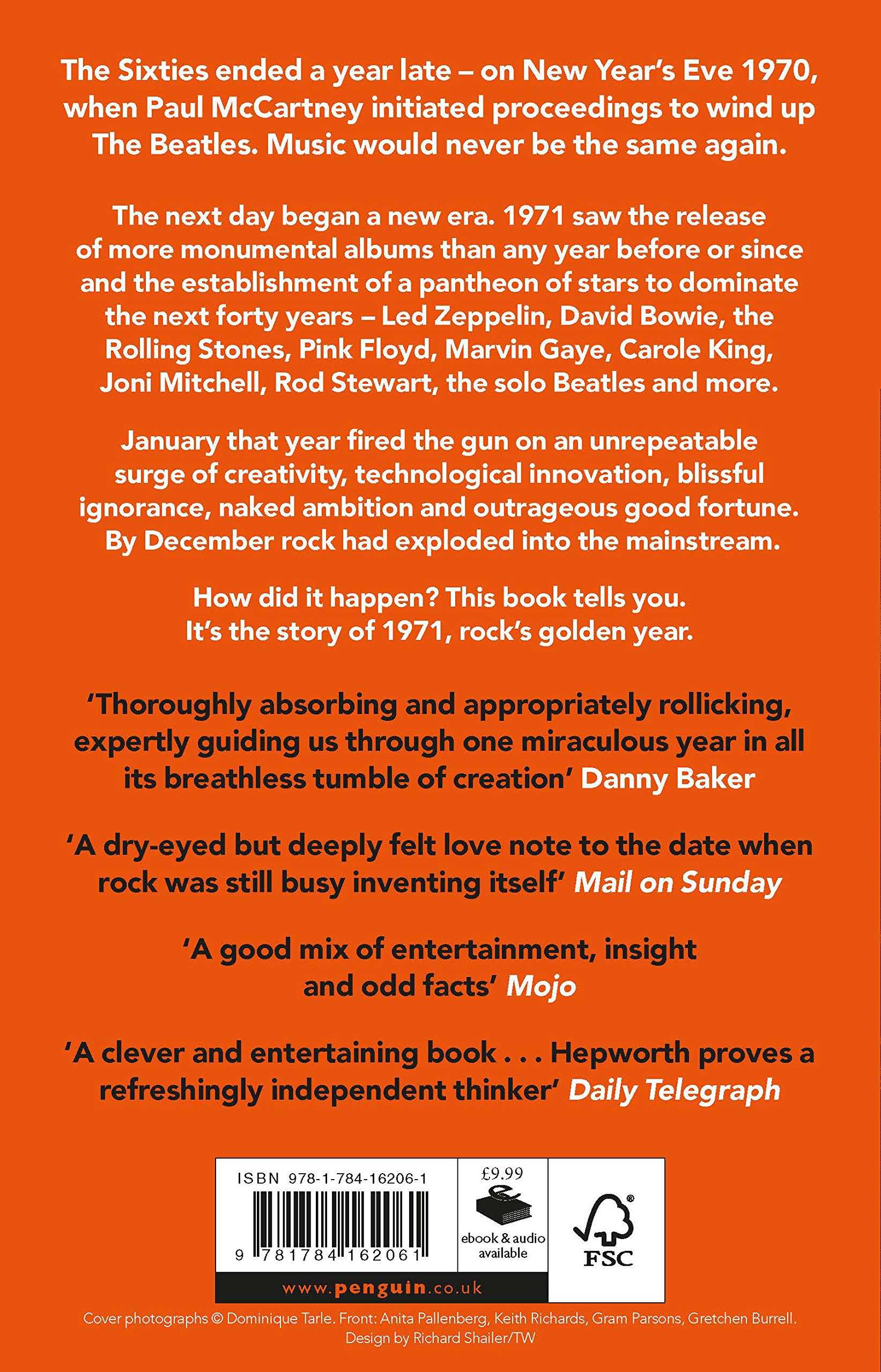Customer Services
Copyright © 2025 Desertcart Holdings Limited



1971 - Never a Dull Moment: Rock's Golden Year
F**G
So good I bought this copy for a freind
Read this book twice. If you love Rock music and want to learn more about the back stories of the bands in the late 60's/Early 70's this is a great read.Writer gives great insight and his knowledge of the music during that period is second to none.Long live Rock !
A**R
Amazon customer.
I have many of David Hepworth. Enjoy to read, and education.
P**Z
Libro en mal estado
El libro ha venido con la contraportada completamente manchada y buena parte de la portada también. Además con las puntas dobladas. Parece que lo han tenido guardado en el aparcamiento del almacén...
G**T
Great read
I really enjoyed reading this book. 71 was just a couple of years before I left school and so I had only some exposure to the music and social context at that time. I did, however, buy most of the music of the era after leaving school. From this perspective the book provided a lot of interesting history and background. The author is very knowledgeable and has a witty writing style. He even purports to know who was sleeping with who at the time - not sure how he knows all of that. I hope the author writes about the early 80's music too.
G**O
Peak Rock History
A lot of these "year in review" sort of books tend to be fairly disappointing, good for jogging the memories, but filled with more generalities than specifics and lacking in insight. Not so "1971"; Hepwoth jams his book full of illuminating detail and color, and you get the feeling he easily could've given you a couple hundred more pages on the topic. HIs premise was that this particular year was rock music's apex, and when you have albums like Hunky Dory, Sticky Fingers, Zeppelin IV, Tapestry, Blue, imagine, Bryter Later, What's Going On, Who's Next et al., it's hard to disagree. Whether you agree with him or not, however, it's an enjoyable read, and he's certainly correct in identifying 1971 as a point when rock was still creating itself, open to so many possibilities and free from the baggage of heritage and history, or the straightjacket of sub-genres. The stylistic diversity of the music that was charting is impressive, and wouldn't be matched again until the early 80s. (See Simon Reynolds' excellent look at post-punk, "Rip It up and Start Again ".)It's a great musical history, both of albums released in 1971 as well as projects that were just finishing up (The Doors, The Velvet Underground) or beginning (The Modern Lovers), but the book is also a cultural history, identifying ripples in the music industry that didn't seem so huge at the time, but turned out to be seismic. Pages on the first Glastonbury festival or the media frenzy of the Mick and BiancaJagger wedding all lead to some very good points.Hepworth has plenty of opinions, often a bit contrarian -- there's more than a little snark when writing about Lennon or Marvin Gaye -- which is welcome, and I'd say he's on the mark far more often than not. The only major critique of this book that I would offer is: I strongly urge the author to reassess his take on Nick Drake, which is unnecessarily harsh, accusing him of being an "arrogant .... upper class hippie" who couldn't be bothered to play live or self-promote, unlike such industrious types as Led Zeppelin and Rod Stewart. It's pretty clear that Drake suffered from clinical depression (let's not forget he took his own life) and social anxiety, and Hepworth seems to be unaware that depression is often something a person simply can't will away. I'd sincerely advise the author to revisit this bit in any second edition Other readers will, I'm sure, have their own bones to pick, but again that's because Hepworth has opinions, and they're not necessarily the ones you going to read and every other book about this era. Probably the best single book you can read on rock music in the era between hippie and punk .
Trustpilot
1 day ago
1 month ago
5 days ago
2 weeks ago